Just for women: Heart clinic a place for support, understanding
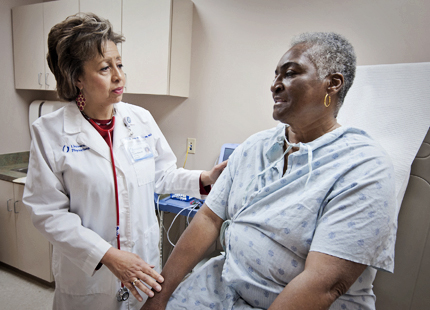
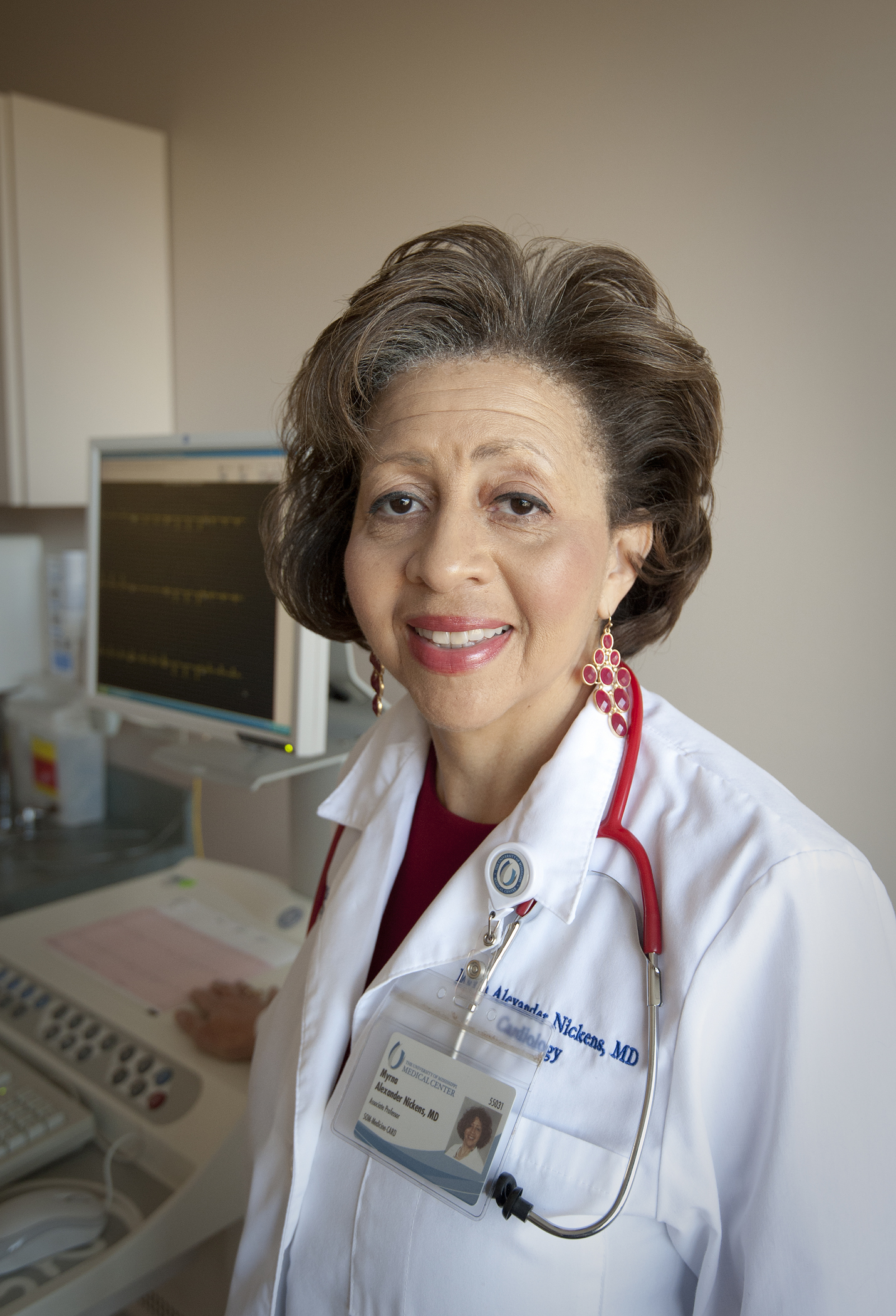
That’s just one reason Dr. Myrna Alexander, University of Mississippi Medical Center associate professor of cardiology, has opened the Women’s Heart Clinic at Select Specialty Hospital in northeast Jackson. Every Thursday, Alexander is breaking from her regular heart clinic to see female patients ages 17 and older referred by their primary physician or licensed, certified practitioner.
Too often, Alexander said, women’s heart symptoms are brushed off by health-care providers who say they’re being dramatic or anxious. Those indicators – among them chest discomfort, a racing heartbeat, hypertension and fatigue – should be explored to rule in, or rule out, a cardiovascular problem, she said.
It could be a matter of life or death. Cardiovascular disease kills more Americans each year than any other disease, the American Heart Association says.
“I am a gatekeeper for determining if a patient has an arrhythmia, a valve problem, or some other form of heart disease,” said Alexander, who came to the UMMC faculty in 2012 after 15 years at Jackson Cardiology Associates. “We investigate it, and we steer them where they need to go.”
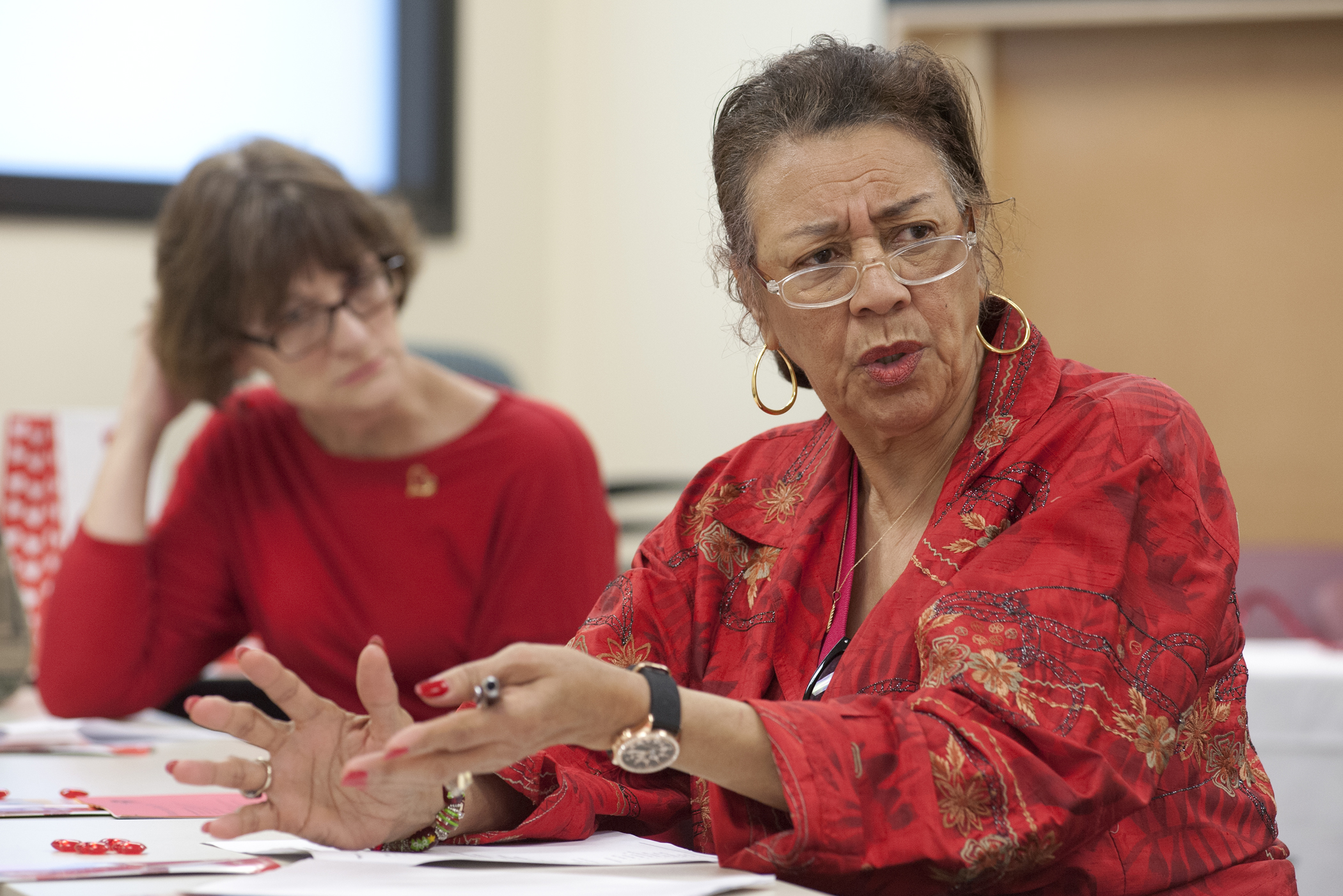
At the new Women’s Heart Clinic, Alexander performs diagnostic tests, including EKG, heart catheterization, exercise stress testing, echocardiogram, and stress echocardiogram, as she evaluates the roles ailments such as diabetes or obesity are playing in the patient’s heart health.
It’s her mission to look at risk factors and different symptomatic presentations of cardiovascular disease in women, as compared to men, and to educate patients and the public about those differences. And, she said, it’s her job to ensure patients and health-care providers realize heart disease isn’t just for men.
“There’s a lot of research being done on why women have different presentations of their symptoms,” Alexander said. “A lot of their symptoms get ignored and misunderstood.”
Patients at the Women’s Heart Clinic will find Alexander has a caring nature and a listening ear, said Tonjula Shelby, a registered nurse and care coordinator who is facilitating a new support group for female patients. “There are things about your body that you’d rather discuss with a female doctor,” Shelby said.
The support group meets at 12:30 p.m. the first Monday of the month at the "UMMC Pavilion" on the medical center campus. It’s open to all women with heart issues, and not just patients of Alexander or UMMC.
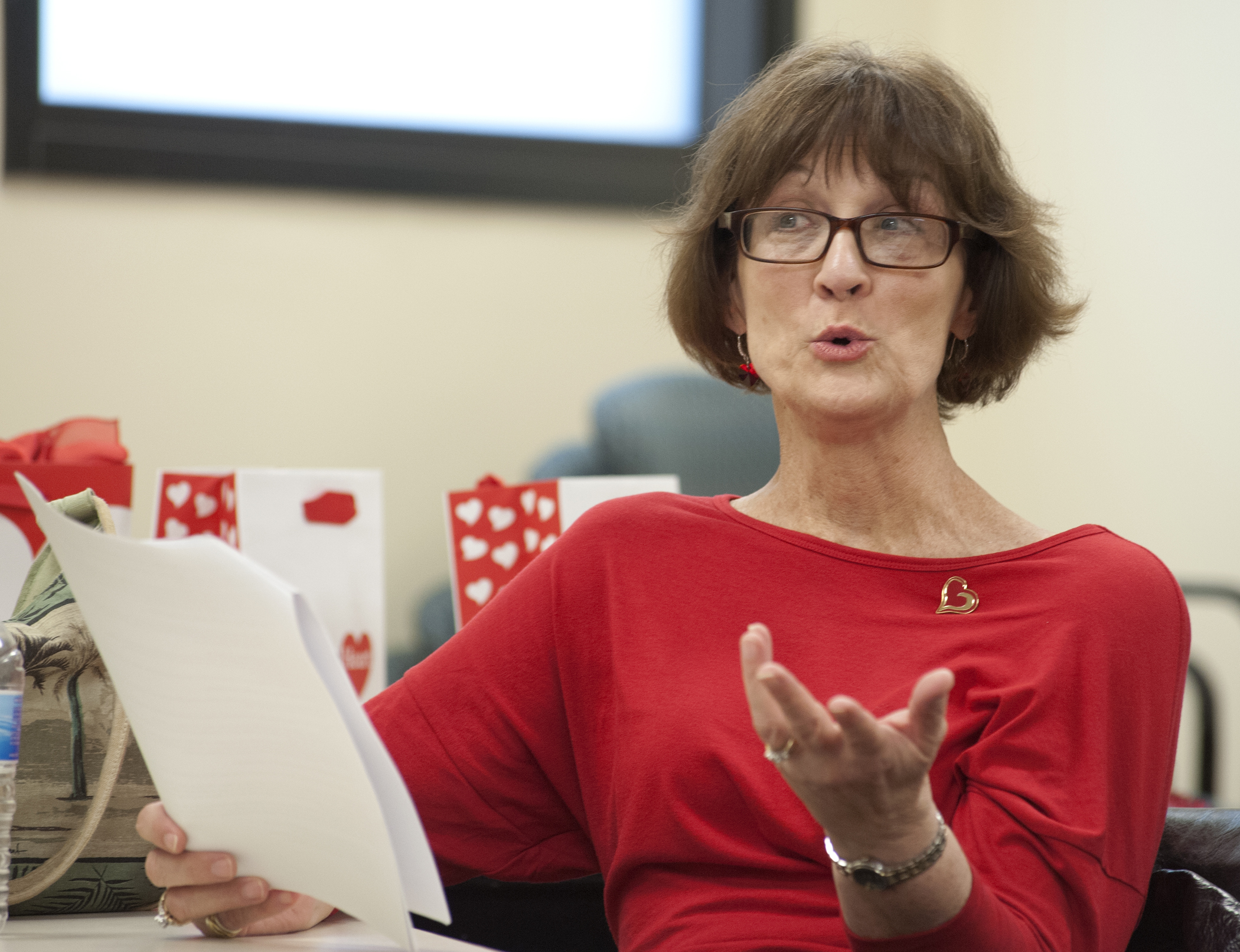
It allows patients to tell their own stories and compare notes on how they’re coping, said Kay Hodges of Terry, who with another of Alexander’s patients, Johnnie Patton of Jackson, is trained to lead the group. They are trained by specialist at the Mayo Clinic to run the support group.
“It’s about learning to do things that will help you with quality of life while you’re dealing with your heart problems,” said Hodges, who has both cancer and congestive heart failure. Speakers educate the patients about anything from nutrition to exercise to their mental well-being.
“I wondered if other women had as much trouble with dizziness as I do,” Hodges said. “And, we talk about depression and stress, and what triggers it. I was so depressed when I had open heart surgery. I wondered if I wanted to go on, and that was not my personality. I talked to one of the nurses, and she said I felt that way because of my heart problem, and that it was common.”
Said Patton, diagnosed with atrial fibrillation: “Women are devastated when they find out they have heart disease. They’re not like men. We invite anyone with heart disease to come to these meetings so we can give them support.”
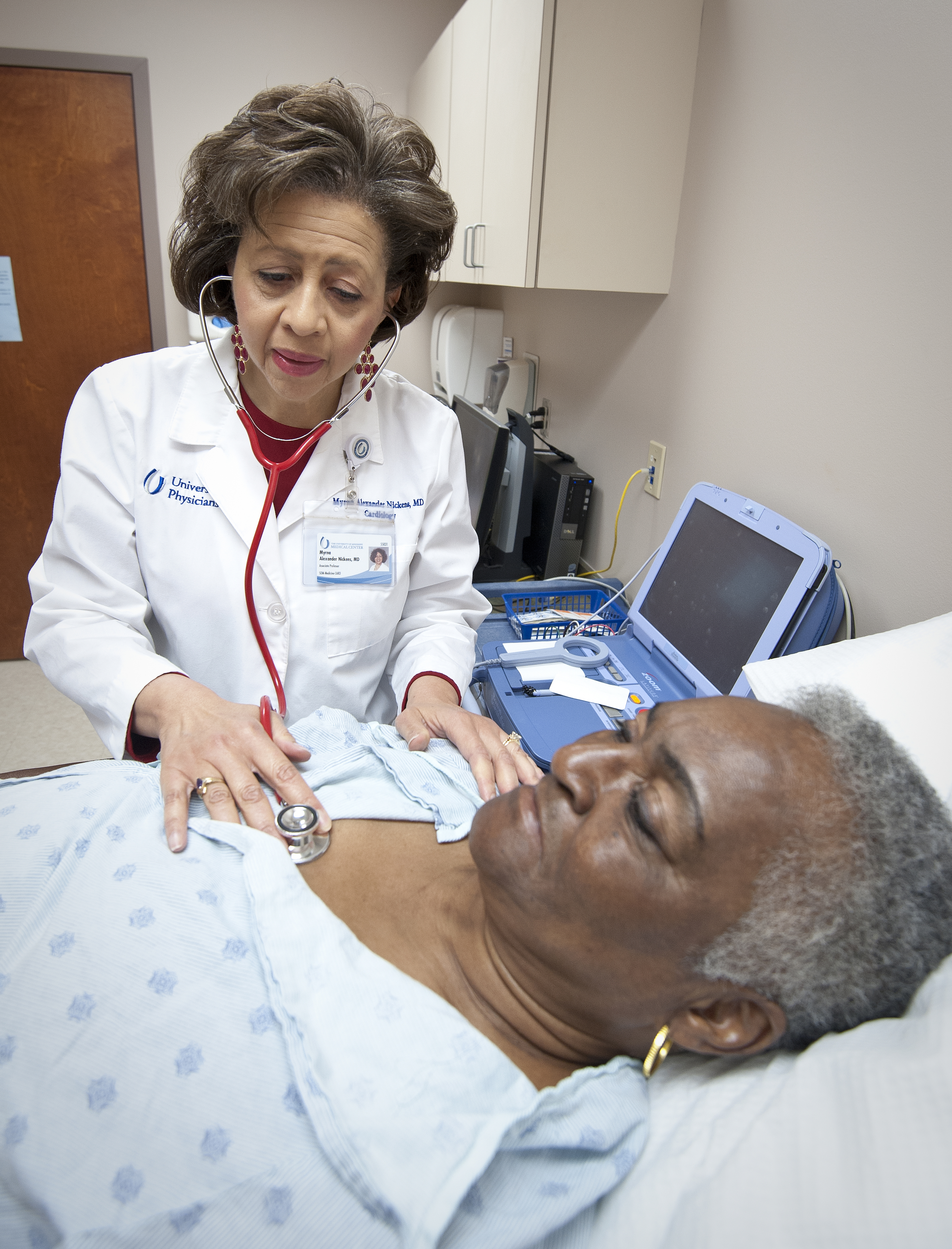
Last week, Alexander saw a new patient, Elizabeth Greer of Lexington. “Take a deep breath,” Alexander said as she examined the 72-year-old. “Have you had any chest discomfort?”
She came to the clinic, Greer said, because “I heard Dr. Alexander was a good doctor, and I’ve always been more comfortable with a female doctor.”
Alexander said another patient with a new defibrillator recently called her. “She told me it was making funny noises, and said she heard it beeping,” Alexander said.
When she called the woman’s cardiologist to discuss it, Alexander said, “Automatically, he thought it was just in her head.”
The doctor reported back to her that he’d researched the defibrillator and discovered it does indeed beep. “You need to pay attention to what we are saying,” Alexander said of her women patients.
Physicians also need more education about treating pregnant women with heart disease, Alexander said. “We have a younger generation of women with heart disease who are getting pregnant,” she said. “Pediatrician and pediatric cardiologist are doing a better job of increasing the survival of kids with heart disease. You correct their problems, they grow up, and want to be normal and have a family.”
Those women and other expectant mothers diagnosed as adults should be treated as high risk, Alexander said. “Pregnancy puts a lot more stress on the heart. The heart has to deal with the extra weight gained during pregnancy, and there’s an increase in cardiac output to provide nutrients for the baby.”
Patient education, Alexander and Shelby say, is another main focus. “We teach risk factor modification, and that can include nutrition, diet, exercise, stress and medication compliance,” Alexander said.
A recent support group speaker gave the women pointers on how stress can lead to depression. Speakers also included UMMC dietitian Dacia Lyn Breeden, who handed out a list of heart-healthy “smart” foods and tips for de-junking refrigerators.
“The path to a healthy heart starts in your stomach,” Breeden told them. “Do you eat to live, or do you live to eat?”
Alexander’s hopes for the fledgling clinic include building its patient base through brochures, family and internal medicine physicians, and other grassroots efforts. She envisions frequent rotations and rounds by fellows, residents and physicians “so that they can understand the special problems experienced by women with heart disease.
“You teach them, and then they can train others to note these problems.”
For more information about the Women’s Heart Clinic, its support group, or making an appointment/seeking a referral, call (601) 984-5678.
Good patient education for those with heart disease includes dispelling myths about its symptoms and treatment, the American Heart Association says.
Those myths include:
Heart disease only happens to old people or those who lead an unhealthy lifestyle.
• The truth: As a child, you can start developing plaque in your arteries that leads to clogged arteries and heart disease. Young and middle-aged adults can develop heart problems because type 2 diabetes and other risk factors, such as hypertension, are popping up earlier in life.
High blood pressure contributes to heart disease, but I don’t have it and I’d know if I did.
• The truth: High blood pressure is called the “silent killer” because you often don’t know you have it. Get it checked; if untreated, it can cause heart attack, stroke, kidney damage and other critical health issues.
You have to have chest pain to be having a heart attack.
• The truth: You can have chest pain or discomfort, but the symptoms may be more subtle, such as shortness of breath, dizziness, nausea or pain or discomfort in the arms, jaw, neck or back.
My diabetes won’t impact my heart because I’m on medication.
• The truth: You’re still at increased risk for heart disease or stroke, because having diabetes automatically puts you there.
Heart disease runs in my family, so I’m doomed to it.
• The truth: You can dramatically reduce your risk by following an action plan to get active, control cholesterol, eat better, manage blood pressure, weight and sugar, and stop smoking.
I’m not having heart failure, because that means your heart stops beating.
• The truth: The heart stops beating during cardiac arrest. Your heart keeps working during heart failure, but it causes shortness of breath, swelling in your feet and ankles, and the inability to normally pump blood through your body.


